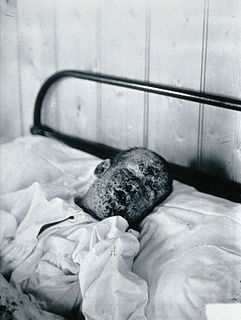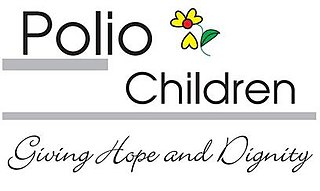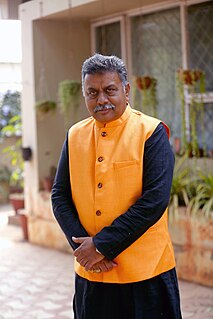
The United Nations Foundation is a charitable organization headquartered in Washington, DC that supports the United Nations and its activities. It was established in 1998 with a $1 billion gift to the United Nations by philanthropist Ted Turner, who believed the UN was crucial for addressing the world's problems. Originally primarily a grantmaker, the UN Foundation has evolved into a strategic partner to the UN, mobilizing support to advance the Sustainable Development Goals (SDGs), and help the UN address issues such as climate change, global health, gender equality, human rights, data and technology, peace, and humanitarian responses. The UN Foundation's main work occurs through building public-private partnerships, communities, initiatives, campaigns, and alliances to broaden support for the UN and solve global problems. The UN Foundation has helped build awareness and advocate for action on, among others, antimicrobial resistance, regional action on climate change, local implementation of the SDGs, as well as global campaigns such as Nothing But Nets against malaria, the Measles & Rubella Initiative, the Clean Cooking Alliance, Girl Up, Shot@Life, and the Digital Impact Alliance, among others. In March 2020, the UN Foundation was also a key founder of the COVID-19 Solidarity Response Fund on behalf of the World Health Organization (WHO), helping to raise over $200 million USD within the first six weeks to support the global response to the COVID-19 pandemic.

The Bill & Melinda Gates Foundation (BMGF), a merging of the William H. Gates Foundation and the Gates Learning Foundation, is an American private foundation founded by Bill and Melinda Gates. Based in Seattle, Washington, it was launched in 2000 and is reported as of 2020 to be the second largest charitable foundation in the world, holding $49.8 billion in assets. The primary stated goals of the foundation are to enhance healthcare and reduce extreme poverty across the world, and to expand educational opportunities and access to information technology in the U.S. Key individuals of the foundation include Bill Gates, Melinda Gates, Warren Buffett, Chief Executive Officer Mark Suzman, and Michael Larson.

Rotary International is an international service organization whose stated purpose is to bring together business and professional leaders in order to provide humanitarian service and to advance goodwill and peace around the world. It is a non-political and non-religious organization open to all. There are over 35,000 member clubs worldwide, with a membership of 1.2 million individuals, known as Rotarians.

Pulse Polio is an immunisation campaign established by the government of India to eliminate poliomyelitis (polio) in India by vaccinating all children under the age of five years against the polio virus. The project fights polio through a large-scale, pulse vaccination programme and monitoring for poliomyelitis cases.
Rotary International offers a number of scholarships worldwide for periods of 3 months, 6 months, 1 year and 2 years.

Paul Percy Harris was a Chicago, Illinois, attorney. He founded the club that became the humanitarian organisation Rotary International in 1905.

Polio eradication, the permanent global cessation of circulation by the poliovirus and hence elimination of the poliomyelitis (polio) it causes, is the aim of a multinational public health effort begun in 1988, led by the World Health Organization (WHO), the United Nations Children's Fund (UNICEF) and the Rotary Foundation. These organizations, along with the U.S. Centers for Disease Control and Prevention (CDC) and The Gates Foundation, have spearheaded the campaign through the Global Polio Eradication Initiative (GPEI). Successful eradication of infectious diseases has been achieved twice before, with smallpox and bovine rinderpest.

Eradication is the reduction of an infectious disease's prevalence in the global host population to zero.
Measles & Rubella Initiative (MRI), launched in 2001, is a long-term commitment and partnership among leaders in public health and supports the goal of reducing measles deaths globally by 90% by 2010 compared to 2000 estimates.
Global Citizen is an international education and advocacy organization working to catalyze the movement to end extreme poverty. The organization was founded by Hugh Evans, Simon Moss and Wei Soo, and aims to increase the number and effectiveness of people taking action to support the cause.
Pakistan is one of the two remaining countries in the world where poliomyelitis (polio) is still categorized as an endemic viral infection, the other one being Afghanistan. As of 8 March 2021, there have been 1 documented cases in Pakistan in 2021, and 84 documented cases in Pakistan in 2020. The total count of wild poliovirus cases in Pakistan in 2019 was 147.

Betty Lou Bumpers was an American politician, advocate for childhood immunizations, and world peace activist, who served as the First Lady of Arkansas from 1971 to 1975. Together, she and Rosalynn Carter ran a successful campaign to ensure that all American school children were immunized. Bumpers was also the wife of the late Dale Bumpers, the governor of Arkansas from 1971 to 1975 and then U.S. Senator from 1975 to 1999.

Luciano Ravaglia was an Italian engineer and member of the Rotary Club of Forlì, D 2072, Italy. In 1979, when the United States saw its last case of polio, Sergio Mulitsch di Palmenberg, the celebrated Rotarian from the Treviglio Club, joined the Rotary 3-H project and volunteered to try out a vaccination campaign which, starting from Italy, took the first doses of polio vaccine to the Philippines, a country which was then badly affected by the disease. This marked the beginning of a Rotary project known as Polio2005, and later renamed PolioPlus, resulting in the vaccination of more than 6 million children in that country.

Polio Children is an international non-governmental organization which has fundraised over £1.3million to fund projects in India, Tanzania, South Sudan and Sierra Leone which enhance the welfare of children with poliomyelitis. The charity has provided scholarships, vocational training and material assistance to polio victims across the world to ensure they can live dignified, independent lives.
Rotary Club of SoHo Hong Kong is one of the clubs under the District 3450 of the Rotary International which is an international service organization, bringing together business and professional leaders in order to provide humanitarian services, encouraging high ethical standards in all vocations, and advancing goodwill and peace around the world. Rotary Club of SoHo Hong Kong is a service organisation serving the community especially for those from young generation and underprivileged group, e.g. single parent family and ethnic minorities. The club was chartered by Charter President Chris Tsang on 1 May 2012 and officially registered as a registered society under the Societies Ordinance of the Laws of Hong Kong in April 2013.
India National PolioPlus Society is a non-profit organization. The Initiative has achieved significant progress toward its goals. There has been a dramatic decline in cases everywhere in the seventeen years since the target was set in 1988.

The Global Polio Eradication Initiative is an initiative created in 1988, just after the World Health Assembly resolved to eradicate the disease poliomyelitis. Led by the World Health Organization, it is the largest international public health initiative in history.

Ravi Vadlamani is a chartered Accountant by profession, Senior Partner in M/s Umamaheswara Rao & Co., a social entrepreneur, philanthropist, was elected as Director on the Board of Rotary International through an election process. He is past District Governor Rotary International (Dist.3150), President, Round Table India, Chairman Indian Red Cross Society, Guntur.
Foreign aid from the United Arab Emirates is provided in the form of assistance, grants and loans through both the government and nongovernmental organizations. These projects provided to other countries deal with healthcare, infrastructure, development, alleviating poverty, responding to natural disasters, refugees and internally displaced people.

Royce Abbey was an Australian who was President of Rotary International in 1988-89.












